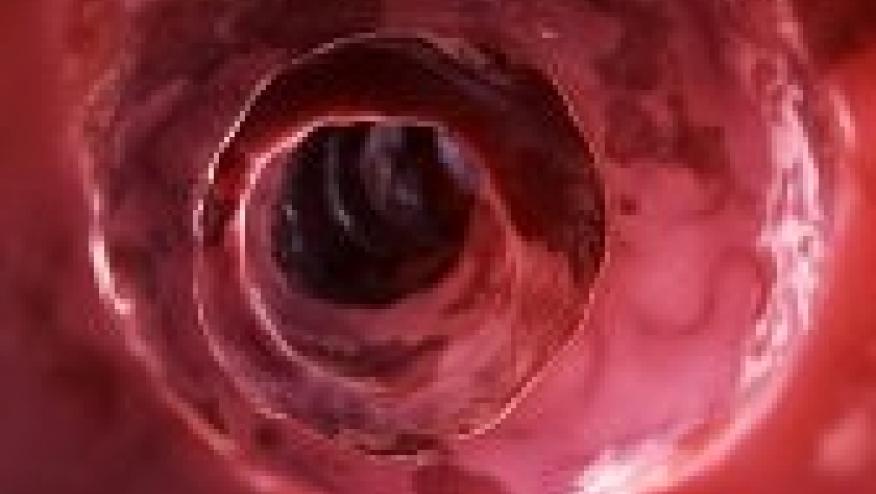NSAIDs and the Risk of Inflammatory Bowel Disease Save

Your patient with Crohn’s or ulcerative colitis has a musculoskeletal problem that needs treatment. You consider a nonsteroidal anti-inflammatory drug, but are reminded that “NSAIDs are to be avoided as these drugs will worsen inflammatory bowel disease (IBD)”. Aside from their effects on prostaglandins, NSAIDs have been postulated to incite damage by increasing mucosal permeability, forming drug enterocyte adducts, decreasing intracellular ATP and altering enterohepatic circulation.
Yet, the evidence for this oft-stated risk is not apparent to me based on years of NSAID prescribing, reviews of NSAID safety and treating many IBD patients with multiple agents including biologics, DMARDs and NSAIDs. Do NSAIDs induce IBD or incite exacerbations? Is this folklore or fact? Review of these reports shows many retrospective analyses, small series, and uncontrolled cohorts. The following is a distillation of the available evidence.
Studies Suggesting No Association between NSAIDs and Colitis Exacerbation
The effects of nonselective NSAIDs were studied at a single outpatient center treating Crohn's disease (CD; n = 426) and ulcerative colitis (UC; n = 203) between 1997 and 2002. Patients were categorized as receiving no, low or high dose NSAIDs and scored disease activity (MHB scores) and exacerbation rates. Overall there was no increase in disease activity with NSAID use, except for those receiving high-dose NSAIDs who had numerically more active disease than those not on NSAIDs. These findings were limited to those with colonic involvement only. Nevertheless, there was no significant increase in flare rates with NSAID exposures (http://buff.ly/1PgEaQt).
A Cochrane metanalysis of COX-2 inhibitor use in patients with IBD only identified 2 trials involving 381 IBD patients with rheumatological manifestations. In one study, etoricoxib (60 to 120 mg/day) was compared to placebo in patients with quiescent or active ulcerative colitis or Crohn's disease. Although there were only 29 events in 159 patients, the etorixcoxib IBD exacerbation rate (17%) was the same as the placebo group (19%) (http://buff.ly/1Pu8eZN).
Another study compared the effects of celecoxib (200 mg twice daily) to placebo in quiescent ulcerative colitis (UC). No statistically significant differences were seen in UC exacerbations in the ulcerative colitis (4%) and placebo (6%) patients. Adverse events were similar in the celecoxib and placebo groups (21% and 17%, respectively, P > 0.20). No patients died and no serious adverse, renal, or thrombotic events were reported. The authors concluded that celecoxib and etoricoxib do not exacerbate IBD symptoms, but both studies had relatively small sample sizes and short follow-up durations (http://buff.ly/1MwoP0A).
Evidence for the Association between NSAIDs and Colitis
Clearly NSAIDs have upper and lower GI toxicities (including small bowel bleeding). However, there is conflicting human and animal data that NSAIDS may initiate IBD or incite flares of IBD. It is important to note that NSAIDs do not worsen irritable bowel syndrome (http://buff.ly/1MwoPhb).
Several retrospective and cohort studies have implicated NSAIDS in the onset or exacerbation of IBD. A single center, retrospective chart review of 60 patients with Crohn's disease, ulcerative colitis, or indeterminate colitis showed that 41% of those in relapse and 26% in remission used NSAIDs. NSAID use was associated with an increased relapse rate (adjusted OR 6.31; 95% confidence interval, 1.16-34.38) (http://buff.ly/1WxjlWy).
The largest study to examine the issue was a case-controlled study of hospitalization records identifying for IBD colitis-associated hospitalizations. They showed a 2-3 fold greater risk if taking recent or current NSAID use (http://buff.ly/1NmhD6x).
Summary
It appears the association between NSAID use and IBD flare is unproven – largely due to a evidence that is short on numbers, low quality and often absent of relevant comparisons. Hence, the absence of evidence is not evidence of absence (of an association) or the converse.
Well-controlled cohort studies or large population-based analyses are needed to assess the outcomes of NSAID use in IBD patients. The conservative approach would be to manage IBD patients with musculoskeletal pain, enthesitis or synovitis with appropriate alternative agents (e.g., acetaminophen, tramadol, biologics, etc.) and reserve NSAID as secondary or tertiary choices for those unable try these agents.










If you are a health practitioner, you may Login/Register to comment.
Due to the nature of these comment forums, only health practitioners are allowed to comment at this time.